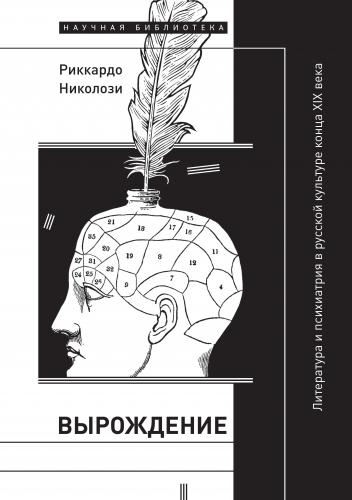39
Barthelmeß A. Vererbungswissenschaft. Freiburg; München, 1952. S. 44–55; Waller J. C. «The Illusion of an Explanation»: The Concept of Hereditary Disease, 1770–1870 // Journal of the History of Medicine. 2002. № 57. P. 410–448; Parnes O. «Es ist nicht das Individuum, sondern es ist die Generation, welche sich metamorphosiert». Generationen als biologische und soziologische Einheiten in der Epistemologie der Vererbung im 19. Jahrhundert // Generation. Zur Genealogie des Konzepts – Konzepte von Genealogie / Hg. von S. Weigel u. a. München, 2005. S. 235–259; López-Beltrán C. The Medical Origins of Heredity // Heredity Produced: At the Crossroads of Biology, Politics, and Culture, 1500–1870 // Ed. by S. Müller-Wille and H.-J. Rheinbeger. Cambridge, Mass.; London, 2007. P. 105–132; Rheinberger H.-J., Müller-Wille S. Vererbung. Geschichte und Kultur eines biologischen Konzepts. Frankfurt a. M., 2009. S. 101–129.
40
О чрезвычайно широком понимании наследственности свидетельствует разработанная Люка типология, где наряду с «прямой» (по прямой материнской или отцовской линии) и «непрямой» (по боковым линиям) наследственностью фигурирует наследование характерных признаков от дальних предков (hérédité en retour), а также от не родных по крови лиц, так называемое «наследование путем влияния» (hérédité d’influence), оказываемого первым половым партнером женщины на ее потомство (López-Beltrán C. In the Cradle of Heredity: French Physicians and «L’Hérédité Naturelle» in the Early 19th Century // Journal of the History of Biology. 2004. № 37/1. P. 39–72. P. 62–64).
41
Huertas. Madness and Degeneration. P. 398.
42
О концепции «диатеза» и ее роли в изучении наследственных заболеваний медициной XIX века см.: Ackerknecht E. Diathesis: The Word and the Concept in Medical History // Bulletin of the History of Medicine. 1982. № 56. P. 317–325.
43
«Un des caractères les plus essentiels des dégénérescences est celui de la transmission héréditaire, mais dans des conditions bien autrement graves que celles qui règlent les lois ordinaires de l’hérédité. ‹…› [L]es produits des êtres dégénérés offrent des types de dégradation progressive. Cette progression peut atteindre de telles limites que l’humanité ne se trouve préservée que par l’excès même du mal, et la raison en est simple: l’existence des êtres dégénérés est nécessairement bornée, et, chose merveilleuse, il n’est pas toujours nécessaire qu’ils arrivent au dernier degré de la dégradation pour qu’ils restent frappés de stérilité, et conséquemment incapables de transmettre le type de leur dégénérescence» (Morel B. A. Traité des dégénérescences physiques, intellectuelles et morales de l’espèce humaine et des causes qui produisent ces variétés maladives. Paris, 1857 [Reprint New York, 1976]. P. 4–5).
44
Nye R. A. Crime, Madness, and Politics in Modern France: The Medical Concept of National Decline. Princeton, 1984. P. 119–131; Gatlin S. H. Charles Darwins Idee der natürlichen Selektion im «Journal of Mental Science» (1859–1875) // Die Rezeption von Evolutionstheorien im 19. Jahrhundert / Hg. von E.-M. Engels. Frankfurt a. M., 1995. S. 262–280. О роли додарвиновских концепций в Европе XIX столетия см.: Bowler P. J. The Non-Darwinian Revolution. Reinterpreting a Historical Myth. Baltimore; London, 1988.
45
Föcking. Pathologia litteralis. S. 289.
46
«[D]éviation maladive du type primitif ou normal de l’humanité». Morel. Traité des dégénérescences. P. 15.
47
Там же. P. 4. Цитируется в пересказе по: Leibbrand, Leibbrand-Wettley. Der Wahnsinn. S. 526.
48
Морель («Traité des dégénérescences». P. 685) подчеркивает взаимно обусловленный характер психических и физических отклонений, иллюстрируя свою мысль помещенным в конце «Трактата» «Атласом» с изображениями и словесными портретами носителей психофизических «отклонений».
49
«[E]xtinction de la famille». Там же. P. 96.
50
В числе causae primae дегенерации Морель называет отравление (вследствие перенесенной болезни, пьянства или употребления опиума), губительное влияние социальной среды (как в сельской местности, так и в промышленных центрах), нравственные расстройства, врожденные или приобретенные пороки. Наиболее опасным он считает сочетание физических изъянов с моральными («Закон двойного оплодотворения»). Ackerknecht. Kurze Geschichte der Psychiatrie. S. 55; Huertas. Madness and Degeneration. P. 399–400. Нозологическое применение Морелем теории вырождения содержится в его «Трактате о душевных болезнях» («Traité des maladies mentales», 1860), относящем дегенеративные нарушения к группе наследственных душевных заболеваний. Huertas. Madness and Degeneration. P. 404.
51
Генри Ф. Элленбергер указывает, что в 1870–1880‐х годах «почти все медицинские заключения, выдаваемые во французских
